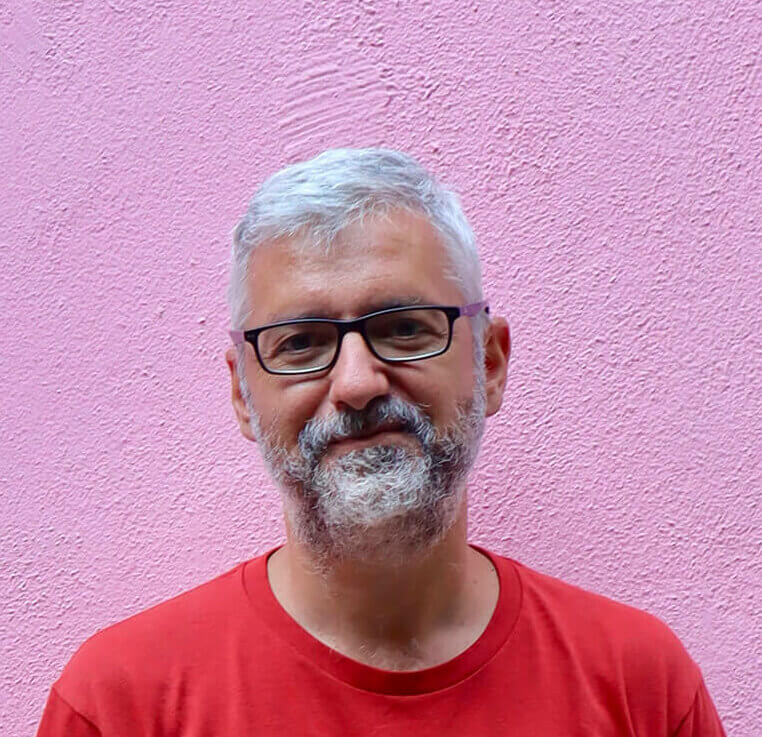 Ασφαλώς έχεις μάθει πια το Μάικλ το Λιούις, αυτό τον intrepid δημοσιογράφο/πρώην επενδυτή της Salomon Brothers, που γυρνοβολά τον κόσμο και γράφει μακρουλά άρθρα στο Vanity Fair και πετυχημένα βιβλία που γίνονται και ταινίες του Χόλιγουντ. Ολοκληρώνοντας την τουρνέ του στα πτωχευμένα μέρη του πρώην πρώτου κόσμου (κι αφού πέρασε από Ισλανδία, Ιρλανδία και Ελλάδα, και πήγε να δει και τον αντίποδα στη Γερμανία), ο Λιούις επέστρεψε στη Αμερική και στην πολιτεία που αντιμετωπίζει την πτώχευση εξίσου, αλλά αλλιώτικα: Την Καλιφόρνια. Και σε εκείνα τα μέρη, που λες, οι Πολιτείες δεν έχουνε λεφτά για να πληρώσουν τις συντάξεις των δημοσίων υπαλλήλων, και έτσι απολύουν κόσμο, σε βαθμό που κάποιες πόλεις πρακτικά να μην έχουν αστυνομία ή πυροσβεστική. Είναι και αυτό ένα συναρπαστικό και διδακτικό ανάγνωσμα, και σε ένα σημείο του έχει το εξής απόσπασμα, που κουβεντιάζει την ενδιαφέρουσα ιδέα ότι οι άνθρωποι δεν είναι φτιαγμένοι για να διαχειρίζονται την αφθονία. Μπορείς να το φορέσεις αυτό το συμπέρασμα στην Ελληνική κρίση, ταιριάζει γάντι:
Ασφαλώς έχεις μάθει πια το Μάικλ το Λιούις, αυτό τον intrepid δημοσιογράφο/πρώην επενδυτή της Salomon Brothers, που γυρνοβολά τον κόσμο και γράφει μακρουλά άρθρα στο Vanity Fair και πετυχημένα βιβλία που γίνονται και ταινίες του Χόλιγουντ. Ολοκληρώνοντας την τουρνέ του στα πτωχευμένα μέρη του πρώην πρώτου κόσμου (κι αφού πέρασε από Ισλανδία, Ιρλανδία και Ελλάδα, και πήγε να δει και τον αντίποδα στη Γερμανία), ο Λιούις επέστρεψε στη Αμερική και στην πολιτεία που αντιμετωπίζει την πτώχευση εξίσου, αλλά αλλιώτικα: Την Καλιφόρνια. Και σε εκείνα τα μέρη, που λες, οι Πολιτείες δεν έχουνε λεφτά για να πληρώσουν τις συντάξεις των δημοσίων υπαλλήλων, και έτσι απολύουν κόσμο, σε βαθμό που κάποιες πόλεις πρακτικά να μην έχουν αστυνομία ή πυροσβεστική. Είναι και αυτό ένα συναρπαστικό και διδακτικό ανάγνωσμα, και σε ένα σημείο του έχει το εξής απόσπασμα, που κουβεντιάζει την ενδιαφέρουσα ιδέα ότι οι άνθρωποι δεν είναι φτιαγμένοι για να διαχειρίζονται την αφθονία. Μπορείς να το φορέσεις αυτό το συμπέρασμα στην Ελληνική κρίση, ταιριάζει γάντι:
In academic papers and a popular book, American Mania, Whybrow argues, in effect, that human beings are neurologically ill-designed to be modern Americans. The human brain evolved over hundreds of thousands of years in an environment defined by scarcity. It was not designed, at least originally, for an environment of extreme abundance. “Human beings are wandering around with brains that are fabulously limited,” he says cheerfully. “We’ve got the core of the average lizard.” Wrapped around this reptilian core, he explains, is a mammalian layer (associated with maternal concern and social interaction), and around that is wrapped a third layer, which enables feats of memory and the capacity for abstract thought. “The only problem,” he says, “is our passions are still driven by the lizard core. We are set up to acquire as much as we can of things we perceive as scarce, particularly sex, safety, and food.” Even a person on a diet who sensibly avoids coming face-to-face with a piece of chocolate cake will find it hard to control himself if the chocolate cake somehow finds him. Every pastry chef in America understands this, and now neuroscience does, too. “When faced with abundance, the brain’s ancient reward pathways are difficult to suppress,” says Whybrow. “In that moment the value of eating the chocolate cake exceeds the value of the diet. We cannot think down the road when we are faced with the chocolate cake.”
Μπορείς να διαβάσεις ολόκληρο το άρθρο εδώ, και όταν τελειώσεις ξαναγύρνα εδώ πέρα, έχω να σου δείξω και κάτι άλλο.
Γύρισες; Μπράβο.
Ο Μάικλ Λιούις λοιπόν βγάζει την τουρνέ του στις πτωχευμένες χώρες σε βιβλίο, και ταυτόχρονα ένα προηγούμενο βιβλίο του γίνεται ταινία με το Μπραντ Πιτ, οπότε με αυτή την αφορμή το περιοδικό New York έφτιαξε ένα προφίλ για τον ίδιο το Μάικλ Λιούις, και μπορείς αυτό να το διαβάσεις εδώ.
At a time of peril for his industry, Lewis has managed to build what amounts to a personal empire of long-form journalism, with a Warren Buffett-like collection of brands and eye for the next big thing. “He’s got good instincts for the individual story and for the broader picture of where that story belongs,” says Vanity Fair editor Graydon Carter. “The big story of the day is the world financial crisis, and he’s the most kick-ass business writer out there.”
Το άρθρο περιέχει κι αυτό εδώ το απόσπασμα, που τον κάνει να μοιάζει λιγάκι ντούσμπαγκ, σε βαθμό που να θυμίζει αυτό τον τύπο.
And now that Europe is on the verge of collapse, Lewis couldn’t be happier, like a distressed-market investor. “The timing for Boomerang is unbelievable,” he said. “It’s going to get worse and worse and worse. I’m going to be on Jon Stewart, and Greece is going to be leaving the euro. Sometimes you get lucky in the moment. Boomerang is really going to get lucky in the moment.”
Φυσιογνωμία, έ;
[field name=”code”]
